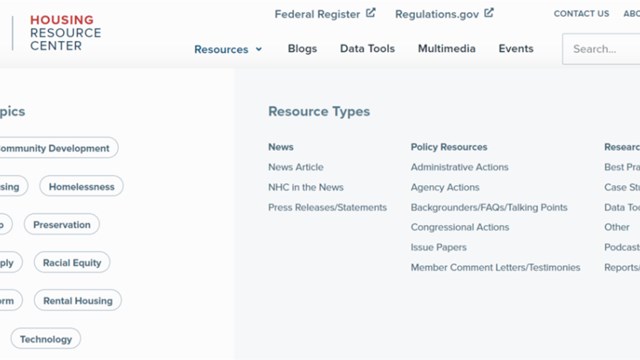In the world of co-ops and condos, few people are more important than a organization's legal counsel. Some of the reasons for needing an attorney's help are obvious - how else would complicated contracts be drawn up and ever-changing laws be followed? Other advantages are less obvious. The right relationship between management and an attorney can help keep shareholders happy, building operations running smoothly, and costs under control.
There's no set of universal rules that boards follow when hiring an attorney, but according to Irwin Cohen of A. Michael Tyler Realty in Manhattan, "Most of the time, attorneys are hired by referral - either through the managing agent, an accountant, or someone who is known to the board. Counsel can also be found through a professional organization such as the Council of New York Cooperatives and Condominiums (CNYC), depending on the nature of the requirements of the attorney." (Editor's note: Also visit The Cooperator's Official Directory of Co-op & Condo Services listing at www.cooperator.com.)
Good referrals aside, a board has to be aware of its specific needs and whether or not an attorney fits them. Factors that need to be considered are size of the community, its location, and the type of situations that might lead to advice from a legal counsel.
"They need to ask what the general need for an attorney is in most cases," Cohen says. "Is it strictly shareholder-related? Is it combinations of shareholder and contractual problems, such as major construction projects? Those are elements the board and the managing agent have to address when selecting attorneys."
"They have to begin with experience and reputation," says Marcie Waterman Murray of the Manhattan law firm of Deutsch Tane Waterman & Wurtzel. "There certainly needs to be a minimal level of experience from the attorney. The requirements for a 1,000-unit development may be different from a six-unit condo. The attorney should have experience in the board's spectrum and should be able to say, "˜Yes, I've done this before and here are some clients for referrals.'"
Both attorneys and managing agents also stress that a board has a far better chance of making a good choice of attorney if they undertake the process before legal trouble arises. All too often, boards - especially those in small, self-managed buildings - don't look into hiring an attorney until they have a problem. While the practice may be common, it puts boards at a disadvantage; when tensions and stakes are high, board members may feel rushed to hire an attorney who upon closer scrutiny might not have been the best choice for that building or that particular problem. Allowing enough time and breathing room to make sound decisions can only benefit a building community in the long run.
While experience is of utmost importance, finding the right personality is also key. You have to know that your attorney is able to work well with people, both individually and with the board as a group.
"Personality is very important," says Murray. "People say it doesn't matter whether or not you like your cardiac surgeon because you don't have an alternative. But when it comes to a service professional, you have a lot of alternatives. If you're going to work closely with somebody, you have to like them."
Like any other employee search, candidates for the position of building counsel are brought in for interviews with the board, or by a committee of selected board members.
"You should ask about their experience, what co-ops they represent," says Eric Zim of the Horowitz & Zim Law Group, PC in Manhattan. "Discuss what kinds of litigation [they] might have been involved in, how they might have handled a certain scenario - that gives [your board] the information you need to make a good decision."
Attorneys also recommend asking your prospective counsel not only how many boards they currently represent, but also requesting a copy of a typical bill from the firm, just to familiarize your board with how the firm bills, how bills are itemized, and how detailed they get.
The right personality also influences a community's bottom line by helping to solve problems without leaping headlong into litigation. Not only are lawsuits costly, but they also often result in bad feelings between neighbors, as well as between shareholders and the board.
"If you have an attorney who just by his or her personality antagonizes people, you're not going to have the benefit of having situations worked out smoothly through negotiations," Murray says. "The potential exists for an acrimonious situation to arise sooner rather than later. That translates into more money the co-op or condo is paying."
"You need someone who takes a practical approach, as opposed to jumping into the litigation arena," Zim says. "Especially when the dispute might involve two shareholders - the corporation or board members will want to foster a dialogue instead of championing one position over another."
Zim recalls one building where a resident received approval for through-the-wall air conditioning. Installing the air conditioner, however, meant that the awning of a resident below (which had been part of the apartment since the tenant owned it) had to be removed. Because the board approved the air conditioning, it took that tenant's side.
"Rather than approaching the shareholder below to perhaps modify the awning, they simply served him with a notice to remove," Zim says. "Three years later, the parties are still in litigation."
Mediation might have been a wiser route, according to Zim. "If I were representing the board, my suggestion would be to approach the shareholders to see if there's something that can be resolved. . . . It's a difficult balance. I think it takes a personality that would be a little more sensitive towards a practical approach."
Once a solid general counsel is found and hired, it may be wise to stick with that counselor - if the relationship is working well. Also, it's advantageous to have an attorney in your corner who remains familiar with the building, the shareholders, board and legal history, even as board members and residents come and go.
"Generally when the sitting president is on board year after year, if the president is happy with the attorney's performance, the rest of the board will [be satisfied] as well," Murray says. "And unless given a reason to change attorneys, the corporation usually will continue with the same counsel."
"Once there's a comfort level with an attorney, boards usually stay with him or her," says Michael Berenson of AKAM Associates, a management company based in Manhattan. "I think where you see a change is when boards change over. There are new people who don't have the same relationships - they don't know the attorney, so they look into options."
Even when actively looking for places to cut costs, managers usually don't bargain shop for an attorney. Sure, you'll probably be able to find someone who charges a lower retainer or per-hour rate, but that doesn't automatically translate into savings over the long term. Working well with people, getting things done efficiently and quickly and avoiding litigation are the best ways to keep costs low.
Typically some of New York's major co-op and condo law firms charge an average of from $150 to $200+ an hour for associates; and up to $350 an hour for a partner's services.
"There's a range of services that should be familiar to the board, and it's not always in absolute terms of what the attorney charges an hour, "Murray says. "It's the value that the board feels it's getting and how that value relates to what they're paying. If you have an attorney with whom the board is happy, that means the bills are getting paid. On the other hand, if everything seems to get messed up and more complicated, then it's a different story."
Boards also want their attorneys to be accessible. In this era of cell phones and e-mails, quick responses are usually possible. Most attorneys agree that a phone call or e-mail from a client should be responded to within 24 hours at the most, and if at all possible, a morning phone call should be returned by the end of the day.
A good attorney should also work in concert with the board and managing agent. While the counsel's job is the law, a manager or board should keep on top of developments in the industry, as well as local laws and regulations and be able to discuss them knowledgeably with their counsel. And your counsel should stay abreast of new developments as well.
"Both the attorney and the managing agent will help guide the co-op,"
Cohen says. "The attorney should know the principles of the law that have to be complied with, and then be able to translate that into a day-to-day requirement for the [client]. The managing agent will then assure that the building is in compliance [with the law]. The managing agent generally ends up being the person responsible for the community's compliance."
"It's a team effort between the management team and the attorney," says
Berenson. "A lot of times, the management will give [a board] recommendations or advice - including advising them to contact their attorneys to make sure they're comfortable with that advice."
Of course, not every board uses its attorney in the same way. Sometimes an arrangement is made where a board pays a certain amount every month to cover a determined number of hours, including board meetings, if necessary. Other firms work strictly on an hourly basis.
"Generally when there's a managing agent involved - and it depends on the building - the involvement may be more limited," Zim says. "They're trying to keep their cost down, and we do bill for our time. But generally speaking, I'd say [we communicate with a board] once or twice a month. Other buildings want the attorney present at some of the board meetings."
Either way, boards needs to use their attorneys wisely. In smaller buildings on tight budgets, it may be enough to call on counsel as-needed: for drafting or updating governing documents, to help avoid - or navigate - litigation, or to go over construction proposals, closing paperwork, or other occasional items. In larger buildings with more people and a more complex hierarchy of documents, rules, and bylaws, it might be necessary to keep an attorney on retainer to advise on or resolve disputes, review vendor contracts, insurance policies, and alterations to documents on a more regular basis.
Boards should realize that it's something of a balancing act between knowing when legal expertise is needed and when you may be relying on your counsel too much.
"It generally comes down to money and the policy," Cohen says. "A contract over a certain number of dollars will get an attorney's review. Any policy regarding a shareholder, a collection matter, a dispute, a purchase, should be attorney-reviewed."
"Attorneys are available to do a whole range of things and it's up to the board to choose from the menu what their attorney is going to do," Murray says. Areas where it's standard to call attorneys include closings, reviewing new laws and regulations, contracts, non-payment or non-compliance by a shareholder, to name a few.
A good personal relationship can also help and some attorneys go that extra mile, but always be aware that the relationship is a professional one and lawyers charge for their time. Going into too much detail on a simple issue or getting into lengthy chats may result in logging more billable hours.
Attorneys don't do it all, according to Cohen. "The best thing to do is seek advice and counsel through your experts - your accountant, your managing agent, your attorney," Cohen says. "And penny-wise, pound-foolish thinking can lead to many mistakes."







Leave a Comment